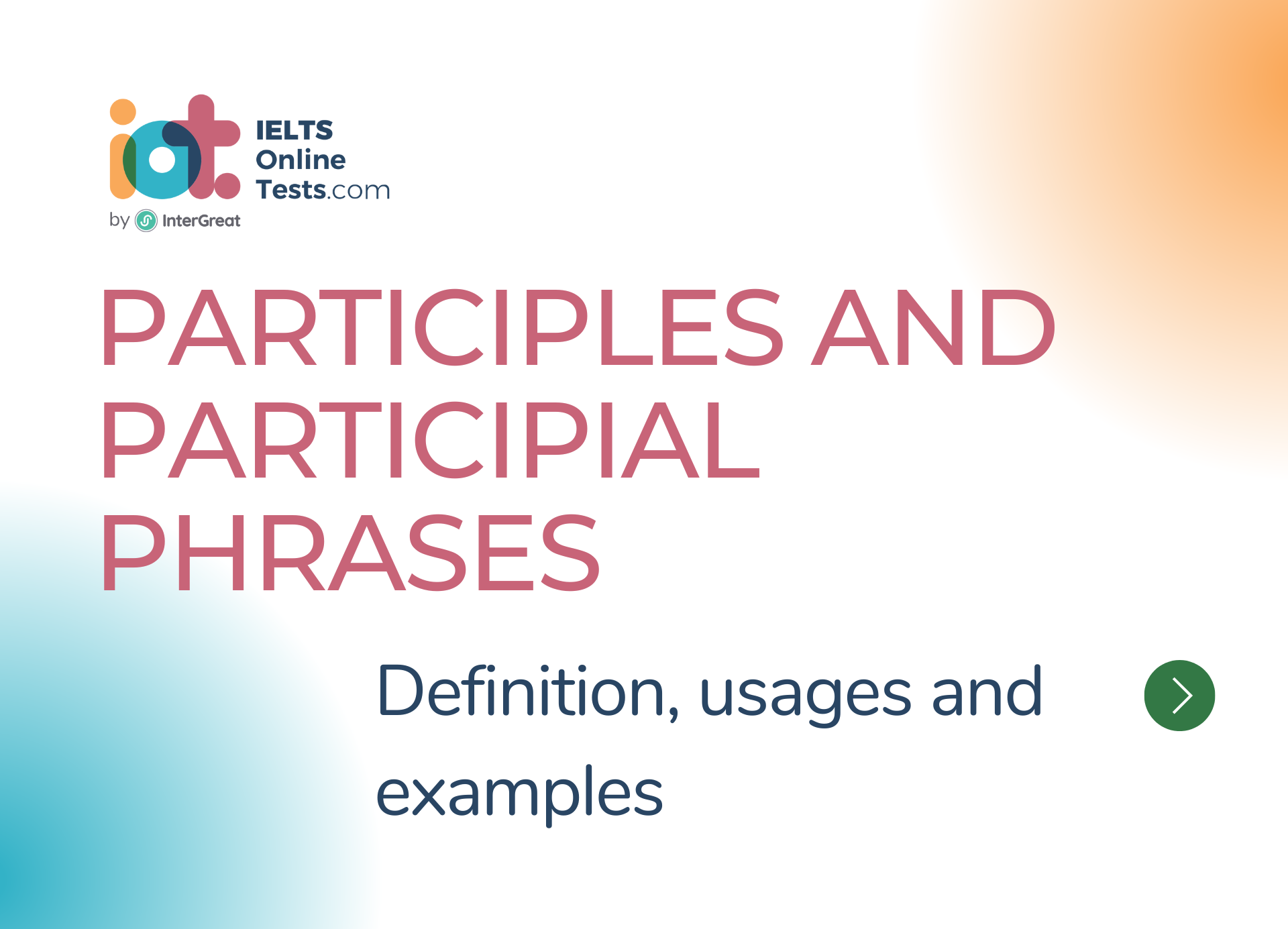
Participles and Participial Phrases
Participles are verb forms that function as adjectives in a sentence. They can be present participles (ending in "-ing") or past participles (ending in "-ed," "-en," "-d," "-t," etc.). Participial phrases are phrases that include a participle along with its modifiers and complements.
Here are more details about participles and participial phrases:
Present Participles:
- Present participles are formed by adding "-ing" to the base form of the verb.
- They describe ongoing or continuous actions or states.
- Examples:
- running, singing, dancing, laughing, talking
Past Participles:
- Past participles are typically formed by adding "-ed" or other specific endings to the base form of the verb.
- They describe completed or passive actions.
- Examples:
- played, written, broken, chosen, spoken
Participial Phrases:
- Participial phrases are phrases that contain a participle along with its modifiers and complements.
- They function as adjectives, providing additional information about a noun or pronoun.
- Examples:
- "The boy, crying loudly, ran to his mother." (Present participial phrase)
- "The book, written by a famous author, became a bestseller." (Past participial phrase)
- "The house, surrounded by a beautiful garden, looked inviting." (Past participial phrase)
Placement and Usage:
- Participles and participial phrases can be placed directly before or after the noun or pronoun they modify.
- They provide descriptive details about the noun or pronoun, adding vividness and specificity to the sentence.
- It's important to ensure that participial phrases are used correctly and clearly modify the intended noun or pronoun.
Dangling Participles:
- Dangling participles occur when the participle or participial phrase is not clearly connected to the noun or pronoun it is intended to modify.
- This can result in confusing or awkward sentence constructions.
- Example of a dangling participle:
- "Walking down the street, my phone rang." (The phone is not the one walking down the street.)
Understanding participles and participial phrases allows you to add descriptive details and variety to your writing. Proper usage and placement of participles contribute to clear and effective communication.




